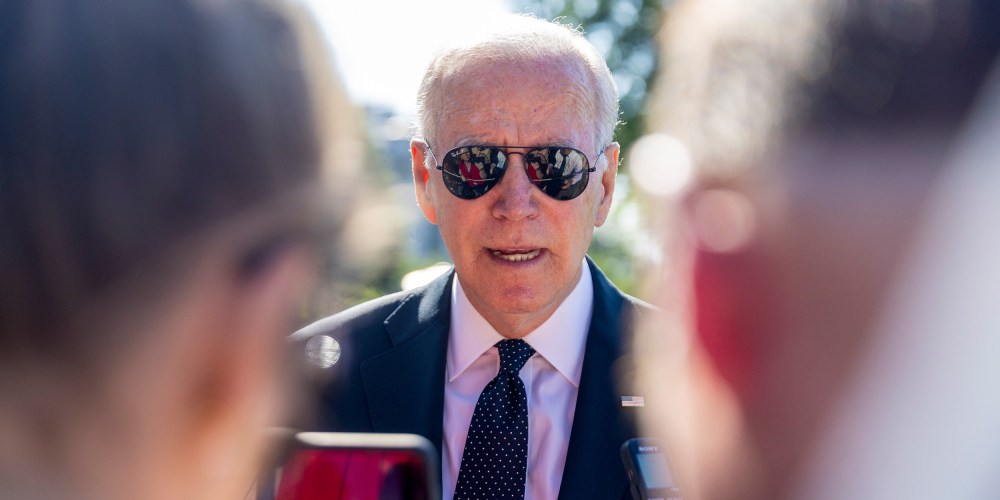Joe Biden is frustrated. As NBC News revealed under the headline “Inside a Biden White House adrift,” the president is beset on all sides by irritations: his sagging poll numbers, the persistence of inflation, the public’s dissatisfaction with the state of the economy and, of course, the general opposition to his agenda from Republican lawmakers. But externalities aren’t the only conditions Biden is contending with. The president is also reportedly vexed by his own staff.
White House aides who ride in to clarify Joe Biden’s remarks aren’t doing so to serve their own interests.
“He makes a clear and succinct statement — only to have aides rush to explain that he actually meant something else,” the NBC News dispatch read. “The so-called clean-up campaign, he has told advisers, undermines him and smothers the authenticity that fueled his rise. Worse, it feeds a Republican talking point that he’s not fully in command.”
Save for employing their powers of observation, Republicans have little to do with Biden’s predicament. White House aides and communications staffers who ride in to clarify and contextualize Biden’s remarks aren’t doing so to serve their own interests. Often, they’re not even doing so behind the president’s back.
For example, on Tuesday, the same day NBC News published its account of the president’s annoyance with his own staff, Biden’s byline graced a New York Times op-ed announcing America’s intention to “provide the Ukrainians with more advanced rocket systems and munitions that will enable them to more precisely strike key targets on the battlefield in Ukraine.” Subsequent reporting revealed that the U.S. will send highly mobile and quick-loading artillery rocket systems and long-range ordnance that can strike targets precisely at up to 70 kilometers (about 44 miles) away.

That declaration represents a reversal from comments the president had made just one day earlier. “We are not going to send to Ukraine rocket systems that can strike into Russia,” Joe Biden affirmed on Monday. What changed? We don’t know. But at some point in the interim between Biden’s comments and the publication of his op-ed, the White House claims to have received direct assurances from Kyiv that Ukrainian forces would not use these platforms to attack targets inside Russian territory. Regardless of the timeline, these assurances are a fig leaf.
Ukrainian forces are only in a position to strike inside Russia because the weapons the West is providing are having their intended effect. Moreover, there are both tactical imperatives and a strategic rationale for executing such strikes on the areas where an invading force is mobilizing. If the reporting is accurate, Ukrainian forces are already executing those operations. Biden’s decision to take long-range ordnance off the table was not reflective of U.S. policy if, that is, U.S. policy is for Ukraine to win this war. Walking the president’s comment back was only prudent.
The president does, however, have good reason to be wary of conditions that could lead the Kremlin to treat the West as a co-belligerent in its war of conquest against Ukraine. The administration betrayed those fears when Biden once again got out over his skis by proclaiming in off-the-cuff remarks in Poland that Russian President Vladimir Putin “cannot remain in power.”
Biden seems most prone to speak his mind to the detriment of American grand strategy when the topic of Taiwan comes up.
Biden had not yet even returned to the United States before his staff embarked on an effort to mop up the president’s morally sensible but strategically parlous assertion. “The president’s point was that Putin cannot be allowed to exercise power over his neighbors or the region,” one White House official said of Biden’s seemingly unambiguous statement. “He was not discussing Putin’s power in Russia, or regime change.” As Washington Post reporter Aaron Blake observed, “Biden himself” was perfectly aware that his comment was a gaffe. He even “helped workshop and sign off on a statement” watering down his extemporaneous remarks.













